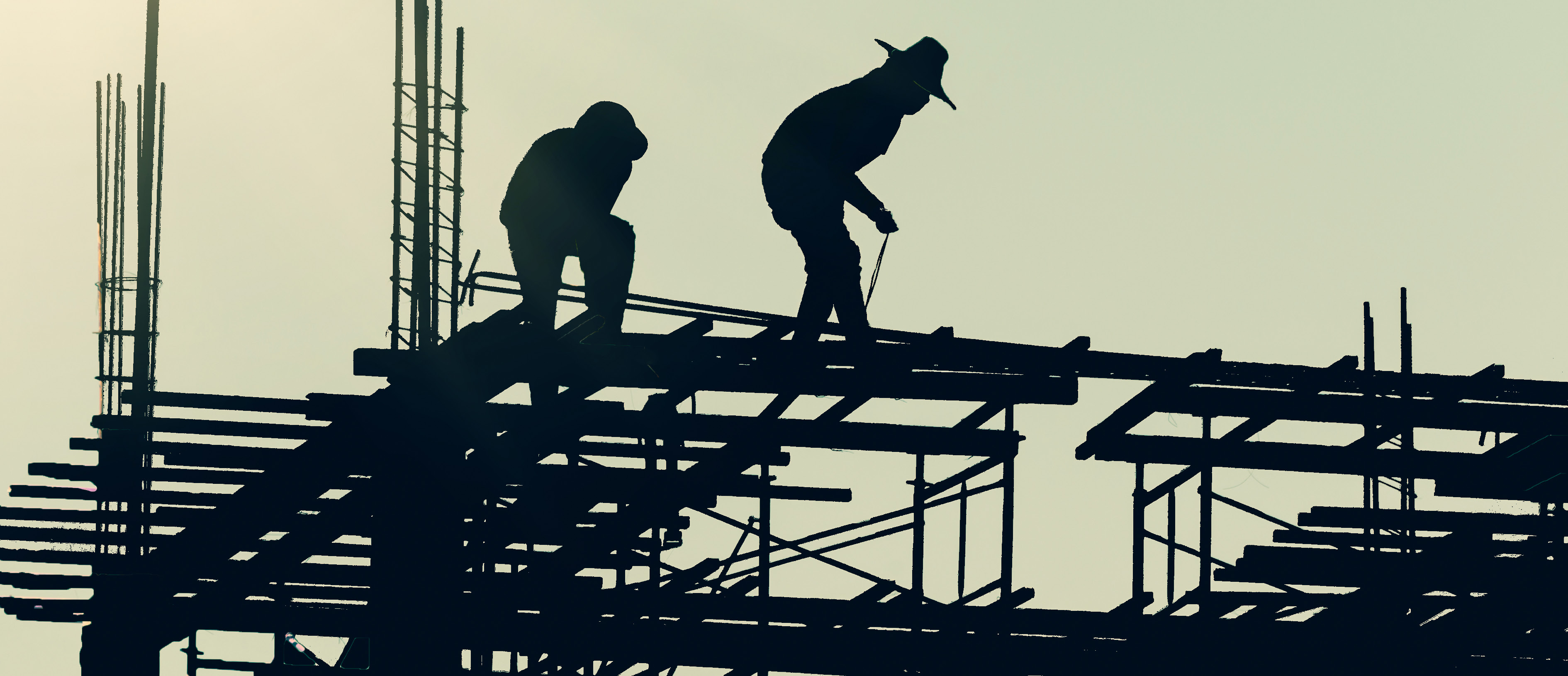- Arbitration
- Banking & Finance
- Capital Markets
- Commercial
- Competition
- Construction & Infrastructure
- Corporate / Mergers & Acquisitions
- Corporate Services
- Corporate Structuring
- Digital & Data
- Dispute Resolution
- Employment & Incentives
- Family Business & Private Wealth
- Innovation, Patents & Industrial Property (3IP)
- Insurance
Find a Lawyer
Book an appointment with us, or search the directory to find the right lawyer for you directly through the app.
Find out more
The Technology Issue
Decoding the future of law
This Technology Issue explores how digital transformation is reshaping legal frameworks across the region. From AI and data governance to IP, cybersecurity, and sector-specific innovation, our lawyers examine the fast-evolving regulatory landscape and its impact on businesses today.
Introduced by David Yates, Partner and Head of Technology, this edition offers concise insights to help you navigate an increasingly digital era.


2025 is set to be a game-changer for the MENA region, with legal and regulatory shifts from 2024 continuing to reshape its economic landscape. Saudi Arabia, the UAE, Egypt, Iraq, Qatar, and Bahrain are all implementing groundbreaking reforms in sustainable financing, investment laws, labor regulations, and dispute resolution. As the region positions itself for deeper global integration, businesses must adapt to a rapidly evolving legal environment.
Our Eyes on 2025 publication provides essential insights and practical guidance on the key legal updates shaping the year ahead—equipping you with the knowledge to stay ahead in this dynamic market.
The leading law firm in the Middle East & North Africa region.
A complete spectrum of legal services across jurisdictions in the Middle East & North Africa.
-
Practices
- All Practices
- Banking & Finance
- Capital Markets
- Commercial
- Competition
- Construction & Infrastructure
- Corporate / Mergers & Acquisitions
- Corporate Services
- Corporate Structuring
-
Sectors
-
Country Groups
-
Client Solutions
Today's news and tomorrow's trends from around the region.
17 offices across the Middle East & North Africa.
Our Services
 Back
Back
-
Practices
- All Practices
- Banking & Finance
- Capital Markets
- Commercial
- Competition
- Construction & Infrastructure
- Corporate / Mergers & Acquisitions
- Corporate Services
- Corporate Structuring
- Digital & Data
- Dispute Resolution
- Employment & Incentives
- Family Business & Private Wealth
- Innovation, Patents & Industrial Property (3IP)
- Insurance
- Intellectual Property
- Legislative Drafting
- Private Client Services
- Private Equity
- Private Notary
- Projects
- Real Estate
- Regulatory
- Tax
- Turnaround, Restructuring & Insolvency
- Compliance, Investigations and White-Collar Crime
-
Sectors
-
Country Groups
-
Client Solutions
Back to Back Clauses in Construction Contracts may not be Enforced
Ahmad Ghoneim - Partner - Litigation / Construction and Infrastructure

Most of the main contractors include a back-to-back clause in their subcontract agreements with their subcontractors. These back-to back-clauses ensure that the main contractor will not be liable to pay the subcontractor payments, unless the main contractor receives the equivalent payment from the employer.
In this article, we will discuss whether back-to-back clauses are enforceable under UAE law with reference to recent judgements of the Abu Dhabi courts.
Background
An employer (“Employer”) entered into a construction contract (“Construction Contract”) with a main contractor (“Main Contractor”) to construct a tower (“Project”).
The Main Contractor entered into a subcontract agreement (“Subcontract Agreement”) with a MEP subcontractor (“Subcontractor”) with a total amount of AED 60 million.
The Subcontract Agreement included a back-to-back clause, in which the Main Contractor will pay the Subcontractor’s payments within (7) to (14) days from the date of receiving the equivalent payment from the Employer.
After the Subcontractor mobilized onto the site and commenced its scope of work, it issued its first interim payment application to the Main Contractor who did not settle this payment because it had not received the equivalent payment from the Employer.
In the meantime, the Employer faced difficulties in continuing to financing the Project, and as a result, all the Project’s works were suspended for several years (i.e., four years approximately).
The Subcontractor requested the Main Contractor to settle the issued interim payment. However, the Main Contractor rejected the request on the basis that it had not received the equivalent payment from the Employer, as per the back-to-back clause set forth in the Subcontract Agreement.
Therefore, the Subcontractor filed a case before the Abu Dhabi Court of First Instance. The Subcontractor requested the court to terminate the Subcontract Agreement and to oblige both the Main Contractor and the Employer to settle the due payment. In addition, the Subcontracted claimed compensation for the loss of profit amounting to AED 15 million. The Subcontractor alleged that the Main Contractor engaged another Mechanical, Electrical and Plumbing (MEP) subcontractor, which impliedly terminated the Subcontract Agreement.
Abu Dhabi Court of First Instance
The Court of First Instance appointed an engineering expert (“Expert”) to review the Project’s record and visit the site to determine, among other things: (i) the Project’s progress, (ii) whether the Main Contractor engaged a new MEP subcontractor, (iii) the outstanding payment owed to the Subcontractor, and (iv) whether the Employer paid the equivalent payment to the Main Contractor.
The Expert issued its report and highlighted that (a) the Project’s works were suspended for several years due to the Employer’s financial difficulties and its inability to continue funding the Project, (b) the Main Contractor did not engage a new MEP subcontractor, (c) the outstanding payment owed to the Subcontractor amounts to AED 6,920,000, and (d) the Employer did not pay the Main Contractor the equivalent payment.
”The UAE Court of Cassation recognises back-to-back clauses and consider it a prerequisite for the subcontractor to claim outstanding payments from the main contractor.”
The Court of First Instance held that the Main Contractor did not engage a new MEP subcontractor, as the Project works were suspended for several years due to the Employer’s financial difficulties, as evidenced in the Expert’s report. Article 272 of the UAE Civil Transaction Code UAE No. 5 of 1985 (“CTC”) states that the termination request may be accepted if one of the contracting parties breached its contractual obligations. In the instant case, it is evident that the Main Contractor did not breach any of its contractual obligations. Therefore, the Court of First Instance rejected the Subcontractor’s request to terminate the Subcontract Agreement.
As for the Subcontractor’s claim for the outstanding payment, it is important to note the precedent of the Court of Cassation. The Court of Cassation previously held that, where a main contractor agreed that it would settle the subcontractor’s due payments after it receives the equivalent payment from the employer, the main contractor’s receipt of this equivalent payment is a prerequisite for the subcontractor to claim its payment. Having said that, the Subcontractor’s request related to its outstanding payment was pre-mature due to (i) the existence of the back-to-back clause in the Subcontract Agreement, and (ii) the Main Contractor not receiving the equivalent payment from the Employer.
In addition, the Court of First Instance rejected the Subcontractor’s claim for compensation, since the Main Contractor did not breach any of its contractual obligations as noted above. The Court of First Instance further highlighted that the Subcontractor could not claim compensation from the Employer, since there was no contractual relationship between them. Hence, the Court of First Instance rejected the compensation claim against the Employer and rejected the Subcontractor’s request to involve the latter in the case.

Abu Dhabi Court of Appeal
The Subcontractor challenged the Court of First Instance decision before the Court of Appeal, based on the same arguments raised before the Court of First Instance. The Subcontract further requested the Court of Appeal to appoint a new expert to review the dispute and issue its expert report accordingly.
The Court of Appeal held that, in accordance with Article 894 of the CTC, where the construction contract cannot be performed due to an external reason beyond the contractor’s control, the construction contract is considered abated and the contractor should be entitled to the value of the work done and any expenses paid for the execution of works. Therefore, where the Expert evidenced that the Project works were suspended due to the Employer’s financial difficulties and that the Subcontract Agreement cannot be executed due to reasons beyond the Main Contractor and the Subcontractor’s control, the Subcontractor is legally entitled to request the termination of the Subcontract Agreement and claim the outstanding payment amounting to AED 6,920,000.
As for the back-to-back clause, the Court of Appeal held that it was unenforceable following the termination of the contract.
The Court of Appeal rejected the Subcontractor’s compensation claim towards the Main Contractor, since the Main contractor did not breach any of its contractual obligations and the termination of the Subcontract Agreement was related to reasons contributed by the Employer, as noted before.
The Court of Appeal further rejected the Subcontractor’s compensation claim against the Employer and rejected its request to involve the Employer in the case, since it does not have any contractual relationship with the Subcontractor.
Abu Dhabi Court of Cassation
The Main Contractor escalated the dispute to the Court of Cassation and requested it to withhold the Court of Appeal judgment due to (i) the existence of a back-to-back clause in the Subcontract Agreement regarding the payments of the Subcontractor, and (ii) the Employer not paying the Main Contractor the equivalent payment that is due to the Subcontractor.
The Court of Cassation issued its decision (Court of Cassation No. 151 of 2104), in which it held that, where a main contractor agreed that it would settle the subcontractor’s due payments after it received the equivalent payment from the employer (i.e., back–to-back clause), the main contractor’s receipt of this equivalent payment is a prerequisite for the subcontractor to claim its payment.
The Cassation Court further highlighted that the relationship between a main contractor and a subcontractor is the same as the relationship between the employer and the main contractor.
Therefore, where the performance of a subcontract agreement becomes impossible due to external reasons beyond both parties’ control, either the main contractor and/or the subcontractor may request the termination of the subcontract agreement in accordance with Article 893 of the CTC. Article number (894) further provides that if the construction contract cannot be performed due to an external reason beyond the contractor’s control, then the construction contract is abated, and the contractor should be entitled to claim the employer to pay the value of the work done and any expenses paid for the execution of works.
Consequently, the Subcontractors’ request to terminate the Subcontract Agreement was valid and the Main Contractor was required to pay the Subcontractor any due payment, However, in this case, the Subcontractor was not entitled to claim compensation for loss of profit from the Main Contractor, as the performance of the Subcontract Agreement became impossible due to external reason beyond the control of the Main Contractor, and thus there was no default by the Main Contractor, hence the Subcontractor’s request for compensation regarding the loss of profit was invalid.
Based on the above, the Court of Cassation rejected the Main Contractor’s appeal and upheld the Court of Appeal judgment.
Conclusion:
- The UAE Court of Cassation recognises the validity of back-to-back clauses regarding the payments in construction contracts and considers it as a prerequisite for the subcontractor to claim outstanding payments from the main contractor.
- The back–to-back clause is rendered unenforceable where the construction contract is terminated, and the main contractor must settle any outstanding payments to the subcontractor.
For further information please contact Ahmad Ghoneim (a.ghoneim@tamimi.com).
Stay updated
To learn more about our services and get the latest legal insights from across the Middle East and North Africa region, click on the link below.


